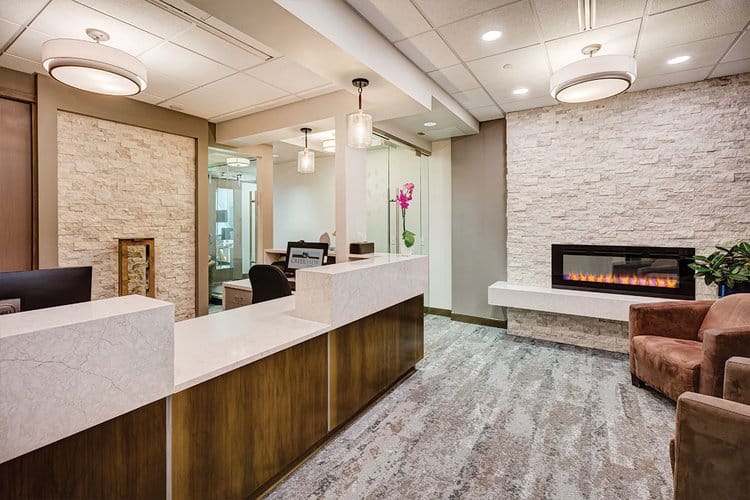lease vs purchase evaluations

Purchase vs. lease evaluations are effective financial analysis methods that can help determine the best office space for your practice. These evaluations compare the costs and benefits of buying or leasing office space based on your long-term strategic and financial objectives. Whether you are looking for your first office space, relocating, or about to renew a lease, this evaluation is essential for making an informed financial decision.
Buying vs. Leasing
Buying
Purchasing a building or office condo grants you ownership of the space, including all the assets that come with it. Buying office space can be more beneficial if you plan to remain in the same area for an extended period and market conditions are favorable. However, owning real estate involves various factors such as interest rates, inventory, cash flow for the practice, and landlord responsibilities, among others.
Leasing
Leasing is an agreement that gives the lessee access to the building or office space for an agreed period in exchange for regular payments. The lessor (landlord) retains ownership of the asset and has certain responsibilities for maintenance. After the lease term, you have the option to renew/renegotiate the lease agreement, expand, downsize, or lease a new space altogether.
Pros and Cons Analysis
Deciding whether to buy or lease depends on your unique circumstances and financial situation. Below is a list of the pros and cons of each option to assist you in determining which course of action would be most beneficial to your practice.
Pros and Cons of Buying
- Higher Monthly Costs: Purchasing can often result in higher monthly costs due to the cost of the real estate and retrofitting the space.
- Flexible Payment Options: Bank loans or repayment plans are frequently available.
- Investment Opportunity: Property owners can often expect their property’s value to increase over time, which can be an excellent investment opportunity.
- Additional Expenses: Owning real estate comes with additional expenses such as interest rates for bank loans, property maintenance, insurance, and repairs. These expenses are tax-deductible but tend to diminish over time.
Pros and Cons of Leasing
- Lower Upfront Costs: If you lease your practice location, the landlord typically contributes to the cost of retrofitting your space, reducing your upfront costs. This allows you to spend more money on equipment, additional staff, marketing, etc. or take on less debt initially.
- Lower Monthly Expenses: The monthly expense tends to be less than owning, which puts less stress on the practice’s cash flow.
- Flexibility: Leasing can provide more flexibility and a predictable exit plan.
- No Property Value: At lease termination, all value of the real estate is left with the landlord.
- Maintenance and Repairs: The lessor (landlord) frequently handles any necessary maintenance or repairs to the property, so you won’t have to worry about unforeseen expenses in the future, however some of those costs could come back to you through operating expenses.
- Long-Term Costs: Leasing may cost your practice more if you find yourself leasing the same space for a significant period without proper negotiating of your lease renewals.
- Tax Deductions: You can claim yearly tax deductions from the lease repayments and operating expenses. Please discuss with your CPA.
Contact Ally Healthcare Real Estate today for more information on how we can assist with a lease vs purchase analysis
